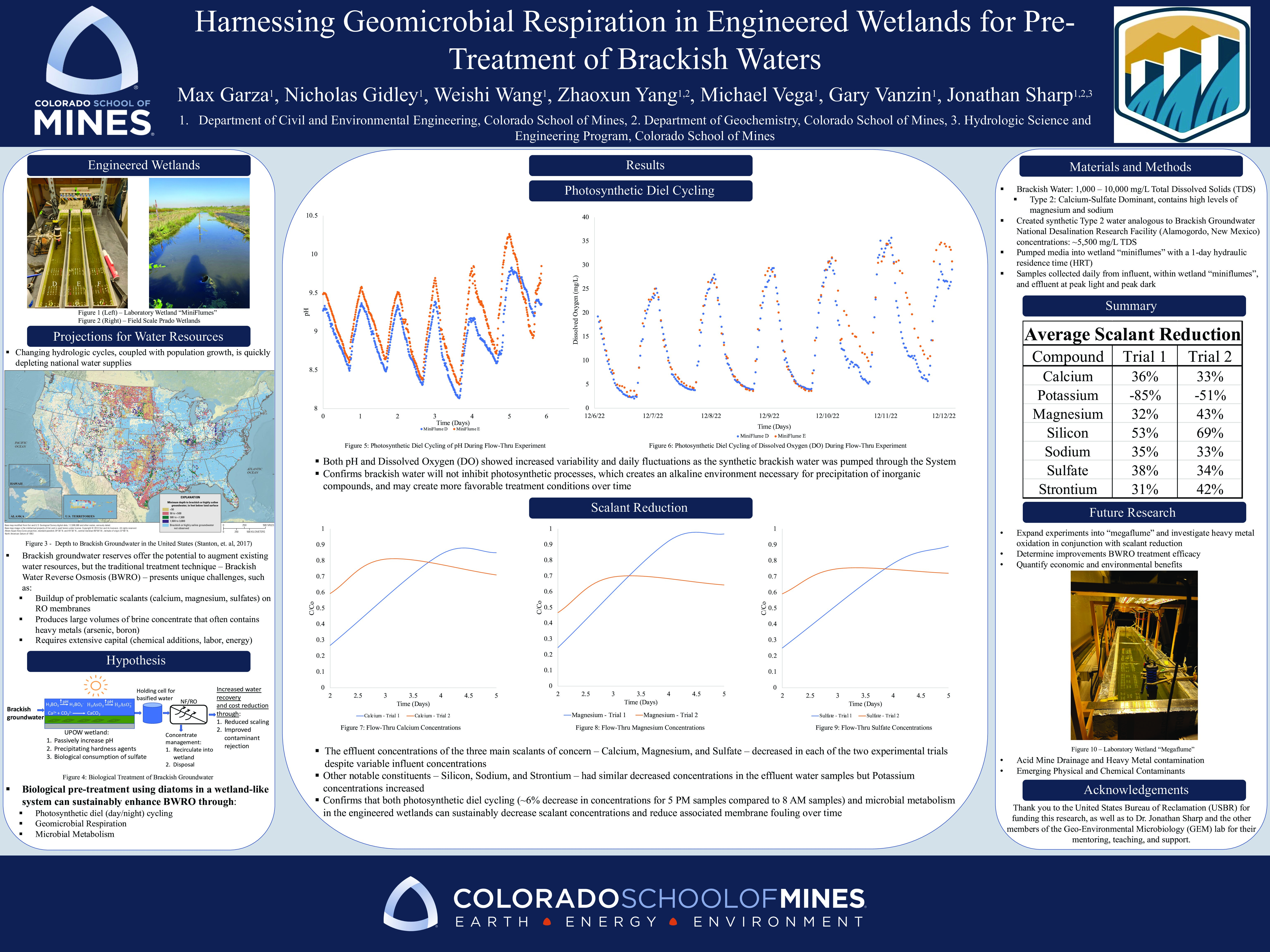Poster Presentation by Max Garza
Senior, Civil and Environmental Engineering
Mentor: Jonathan Sharp, Civil and Environmental Engineering
Abstract:
As arid regions become increasingly vulnerable to climate change, brackish groundwater offers the potential to supplement existing water resources, particularly for inland states such as Colorado. However, Brackish Water Reverse Osmosis (BWRO), presents a unique set of challenges that include membrane fouling due to elevated concentrations of inorganic precipitates and the production of substantial quantities of brine concentrate that often harbor heavy metal contamination. A possible mechanism for increasing BWRO efficacy is the use of shallow, unit process open water (UPOW) wetlands colonized by diatoms for biological pre-treatment. The photosynthetic diel (day/night) cycling in the wetlands, which passively increases pH during the day as carbonate is consumed, mimics traditional water treatment to create favorable, alkaline conditions needed for metal precipitation, but without chemical additions. Through various processes, the microbial mat (biomat) that naturally forms within UPOW wetlands can potentially reduce scalants (calcium, magnesium, and sulfates), as well as oxidize challenging constituents, such as arsenite, from the water prior to membrane treatment. Therefore, laboratory-scale UPOW wetlands were created using biomat harvested from an operational field-scale constructed wetland and challenged with synthetic brackish water. Preliminary results suggest that the reduction of scalant concentrations and oxidation of heavy metals can prevent excess membrane fouling and enhance RO rejection. This approach promotes environmental sustainability by eliminating the need for chemical additions, reducing brine concentrate volumes, and by decreasing energy and labor requirements. Findings may ultimately help address technoeconomic issues associated with BWRO and help guide further investigations into biological pre-treatment of brackish water.
